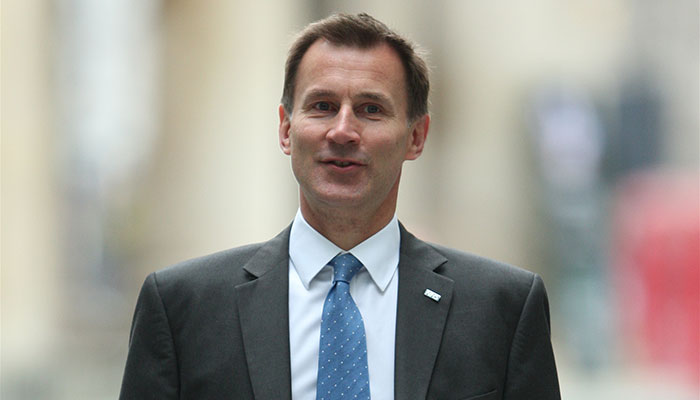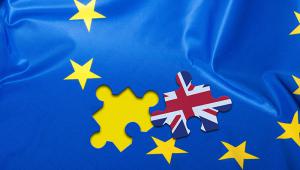
Jeremy Hunt. Image © Shutterstock
This was billed as the fiscal deficit, ‘black hole’ filling Autumn statement. But has the government created a black hole of growth and living standards that will engulf it?
Black holes in budgets are a bit of a mystery. There have been shout-outs about enormous numbers of billions in the UK accounts that must be filled, or the markets will convulse and finish of Sunak and Hunt the way they did Truss and Kwarteng. We faced the same scare stories when I worked in Downing Street during and after the Great Financial Crash even though debt-to-GDP ratios were tiny by today’s standards – and which we resisted by and large. And of course George Osborne used it as an excuse for cutting down the size of the state.
In fact these so called ‘black holes’ are pretty movable, constructed through a combination of imperfect forecasting and self-proclaimed fiscal rules laid down by the government. And markets give you quite a lot of leeway if they think you are serious and have plans to keep things under control.
But that all depends on credibility – which the government lost over the Truss mini-budget. So the new regime is being cautious – almost certainly way over-cautious – with this Autumn Statement.
But that means there is damage to the economy – including to confidence – at a point where the new OBR forecasts say we are heading into a recession followed by low growth. The OBR make this graphic, predicting that living standards (measured by real disposable household income) will fall by an enormous 7.1% from 2021-22 to 2023-24.
Although the rhetoric was all about the global headwinds and tacking inflation, Hunt was also clearly driven by the debt situation, which itself was severely aggravated by a very big increase in debt interest – a result of high interest rates, inflation and slower growth.
So what did he do?
Well, he loosened his fiscal rules a bit to give himself a bit more room – so that the debt-to-GDP ratio does not have to fall for five years, and (strangely) changing the deficit rule to the total deficit not just the current deficit as has been the measure for many years.
Then he kept most departmental public spending in cash terms at the same levels as it was before inflation took off – i.e. greatly reducing the real spending power of those budgets and leaving little room for any kind of decent public sector pay increases – despite it falling so far behind private sector pay. There were tight plans on public spending for the period beyond the next election too, but whether they will ever see the light of day is a very moot point.
Health and education got some extra money, but areas such as local government will fear the worst. Capital spending escaped a nominal cut but will suffer in real terms. Gone too is the prospect of any return to 0.7% of GNI for overseas aid. And defence did not get the uplift to 3% that some pined for.
On a more positive side, benefits and pensions will go up by inflation – after a lot of lobbying – and the national living wage is to going up too. And a new, more targeted energy support package was unveiled for beyond April.
But there were also big tax rises. The trusty stealth tax of freezing thresholds raises lots of money - and hits household incomes - when inflation is raging as it is now. There were also effective rises in tax on things like capital gains and dividends while there was a very big extra take from employers NICs, as well pushing local authorities to push up council tax.
The lowering of the income level at which people pay 45p tax is fascinating as it comes just weeks after then-PM Liz Truss tried to reduce it to 40p, and very blatantly breaks a key 2019 Conservative manifesto pledge not to raise income tax.
The economics of this are much-contested. To bash real household incomes and public services at a time when interest rates are rising, the UK economy is in recession and the world is facing slow growth is not what most economists would advise – even if there have been attempts to backload the fiscal consolidation until the recession is hopefully passed.
It is not surprising, therefore, that the OBR confirmed really poor forecasts for growth at negative 1.4% in 2023 and just 1.3% in 2024 with a rise in unemployment from 1.2 million up to 1.7 million in 2024. On business investment the OBR sees a fall in 2023 of around 2%, hardly helping us produce more growth.
The politics of all this are maybe clearer. After the Kwarteng/Truss period, there is an attempt to play the Conservatives as again the safe, deficit-reducing, ‘sound money’ party, ready to accuse Labour of the opposite. There were great attempts too to play up the One Nation style of Conservatism, presenting all this as ‘fair’ because it hits the rich. There was also just enough on energy efficiency and the climate crisis to let the government hold onto the green agenda and one or two – pretty tame – bits on levelling up.
But people will feel their public services begin further squeezed. They will feel the tax rises – with tax as a percentage of GDP soaring to pretty unprecedented levels. And despite more support, energy bills for most will be going up once again – and interest rates are not set to fall. Whether the public will see this as the inevitable consequence of Covid-19 and the war in Ukraine or the result of 12 years of Tory rule and a crass Truss/Kwarteng interlude is unclear.
This may turn out to be a very clever fiscal event that sees the economy and the popularity of the Conservatives turn a corner. But it may just put the government into a new growth and popularity black hole.











